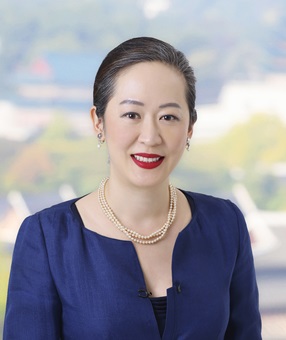Multinational corporations often engage in international transactions involving related parties, including transactions between the headquarters and a foreign subsidiary or between foreign subsidiaries. In evaluating dutiable values, the Korean customs authorities usually apply a method alternative to using transaction prices in the related party transactions (which is “Method 1” pursuant to Article 30 of the Customs Act). As it is often difficult to find identical or similar goods (i.e., “Method 2” pursuant to Article 31 or “Method 3” according to Article 32 of the Customs Act) to those traded in the related party transactions, the customs authorities in Korea frequently apply “Method 4” pursuant to Article 33 of the Customs Act.
Method 4 involves determining the dutiable value by deducting (i) usual profit and general expenses, (ii) usual costs of transport and insurance and associated costs, and (iii) the customs duties and other national taxes from the domestic sale price of imported goods. There is often a significant difference between the duty amount assessed based on the transaction price (Method 1) and the amount determined through Method 4. Accordingly, numerous appeals against assessments have been filed and in the process, issues have been raised as to whether it is appropriate to apply Method 4 and whether Method 4 is properly applied.
In response, the Notification on Customs Valuation Operation (the “Notification”) was partially amended on August 10, 2023 and amended regulations related to Method 4 will become effective on January 1, 2024. The key amendments are as follows:
|
1. |
Cases in which Method 4 Cannot be Applied (Article 31 of the Amended Notification) |
Article 31 was added to the Notification to provide specific examples where Method 4 should not be applied in determining dutiable value. According to the new Article 31, dutiable value cannot be determined using Method 4 if (i) there is a reasonable ground to doubt the accuracy and authenticity of the domestic sale price, (ii) the domestic sale price cannot be confirmed within 90 days from the date of import declaration, (iii) two or more comparable companies cannot be selected by using the method set forth in Article 34 of the amended Notification, or (iv) “the ratio of profits and general expenses calculated based on the accounting report submitted by the importer in question” pursuant to Article 27(5)1 of the Enforcement Decree of the Customs Act cannot be calculated as required by Article 36 of the amended Notification.
|
2. |
Improvement to the Comparable Company Selection Process (Articles 33 and 34 of the Amended Notification) |
One of the main issues raised in customs appeals related to Method 4 is whether profit and general expenses calculated by the customs authorities are appropriate. In a number of recent decisions related to Method 4, the courts ruled in favor of the importers, finding a defect in the customs authorities’ selection of comparable companies.
The amended Notification purports to address problems setting forth specific procedures for selecting comparable companies:
-
Determining a group of items, etc. subject to calculation (Article 33)
|
– |
The criteria for determining a group of imported goods (referred to as “a group of items subject to the calculation” in Article 33) are specified. |
|
– |
The procedure for determining HS codes of the same class and same kind goods is prescribed. |
-
Selection of comparable companies (Article 34)
|
– |
At the initial stage, the HS code of the same class and same kind goods and business type are to be used simultaneously in initially selecting comparable companies. |
|
– |
The previous limits on the numbers of comparable companies in each selection stage (e.g., 100 companies, 30 companies) have been removed. |
|
– |
The comparable company is to be selected based on the business type provided in the business registration information, rather than the type previously provided by a credit rating agency, with a clarification on the timing in which relevant comparable companies are to be selected. |
|
– |
Certain new criteria for selecting companies are established. The criteria take into account the transaction volume of importers and import amounts of potentially comparable companies. |
|
– |
The provision on relaxed requirements for selecting comparable companies in Method 4 is deleted. |
|
3. |
Specifying the Scope of Application of Method 6 (Article 39 of the Amended Notification) |
If the dutiable value of imported goods cannot be determined by a method pursuant to Articles 30 through 34 of the Customs Act (i.e., from Method 1 to Method 5), the method may be interpreted and applied in a flexible manner (according to Article 35 of the Customs Act and Article 29 of the Enforcement Decree, called “Method 6”). The amended Notification specifies matters that can be adjusted when applying Method 4 in a flexible manner to specific cases. For example, the group of items subject to the calculation, the HS code of the same class and same kind goods, the business type, the amount of import, etc. can be adjusted in a manner reasonably accepted in light of the substance and practice of the transaction.
|
4. |
Others (Articles 35, 36 and 37 of the Amended Notification) |
The amendments include matters that are also important in applying Method 4. For example, the amendments set forth (i) separate provisions on the method of calculating and notifying a profit and general expense ratio of comparable companies (referred to as a “P&GE ratio”) (Article 35), (ii) detailed provisions on the method of calculating a ratio of the importer in question (Article 36), and (iii) detailed provisions on raising objections to the proposed P&GE ratio (Article 37).
Starting on January 1, 2024, the Korean customs authorities are expected to follow the improved procedures for applying Method 4 as an alternative to using the transaction value (Method 1) as set forth in the amended Notification. Therefore, multinational corporations that often experience Method 4-related issues are advised to pay close attention on how such changes to the customs administration may affect their business.
Related Topics
#Method 4 #Method 6 #International Trade & Customs #2023 Issue 3 #Newsletter










